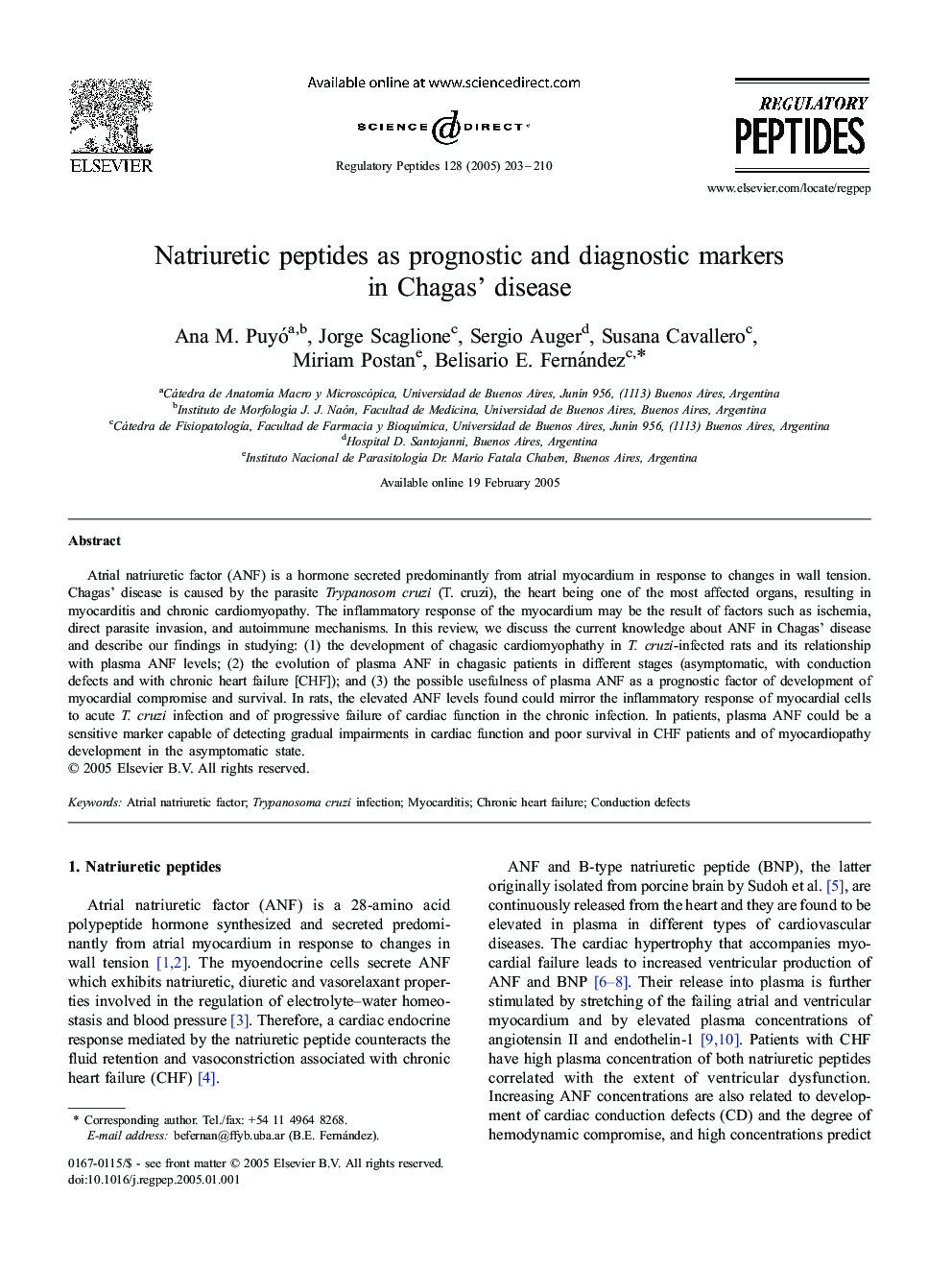| Article ID | Journal | Published Year | Pages | File Type |
|---|---|---|---|---|
| 10845301 | Regulatory Peptides | 2005 | 8 Pages |
Abstract
Atrial natriuretic factor (ANF) is a hormone secreted predominantly from atrial myocardium in response to changes in wall tension. Chagas' disease is caused by the parasite Trypanosom cruzi (T. cruzi), the heart being one of the most affected organs, resulting in myocarditis and chronic cardiomyopathy. The inflammatory response of the myocardium may be the result of factors such as ischemia, direct parasite invasion, and autoimmune mechanisms. In this review, we discuss the current knowledge about ANF in Chagas' disease and describe our findings in studying: (1) the development of chagasic cardiomyophathy in T. cruzi-infected rats and its relationship with plasma ANF levels; (2) the evolution of plasma ANF in chagasic patients in different stages (asymptomatic, with conduction defects and with chronic heart failure [CHF]); and (3) the possible usefulness of plasma ANF as a prognostic factor of development of myocardial compromise and survival. In rats, the elevated ANF levels found could mirror the inflammatory response of myocardial cells to acute T. cruzi infection and of progressive failure of cardiac function in the chronic infection. In patients, plasma ANF could be a sensitive marker capable of detecting gradual impairments in cardiac function and poor survival in CHF patients and of myocardiopathy development in the asymptomatic state.
Keywords
Related Topics
Life Sciences
Biochemistry, Genetics and Molecular Biology
Biochemistry
Authors
Ana M. Puyó, Jorge Scaglione, Sergio Auger, Susana Cavallero, Miriam Postan, Belisario E. Fernández,
